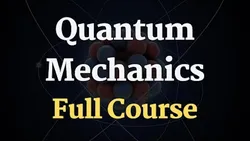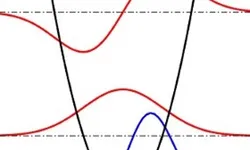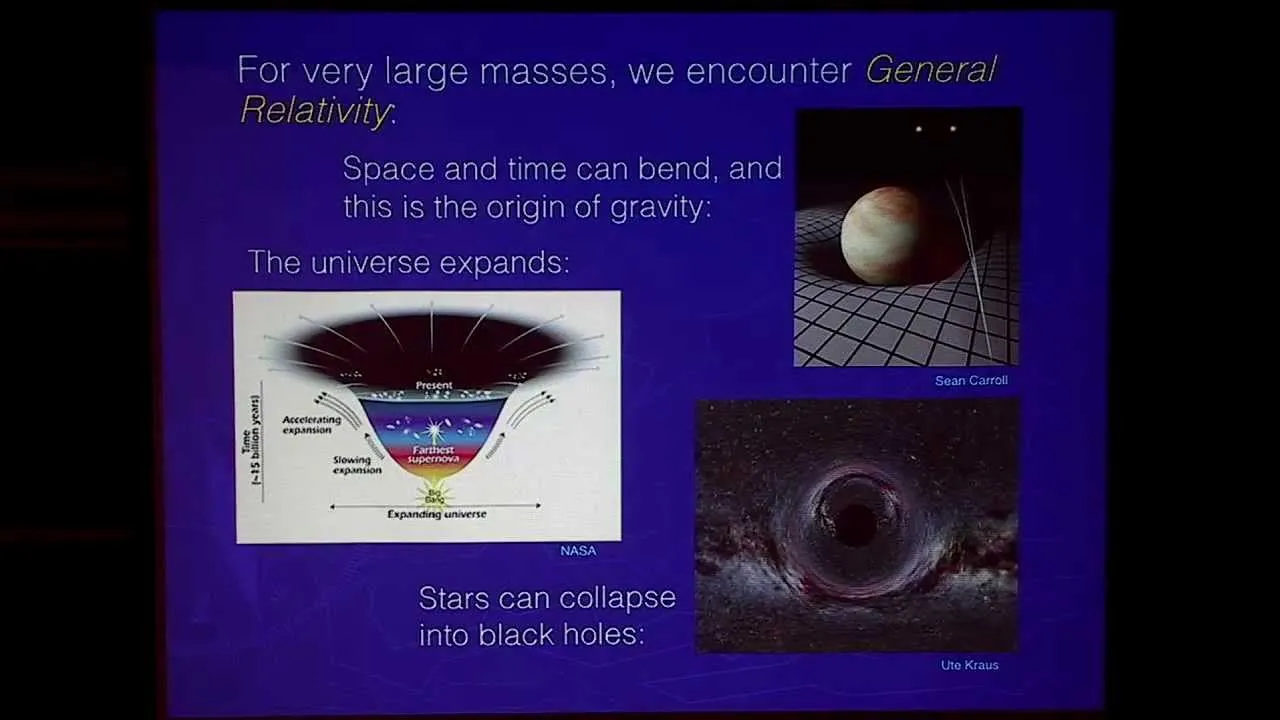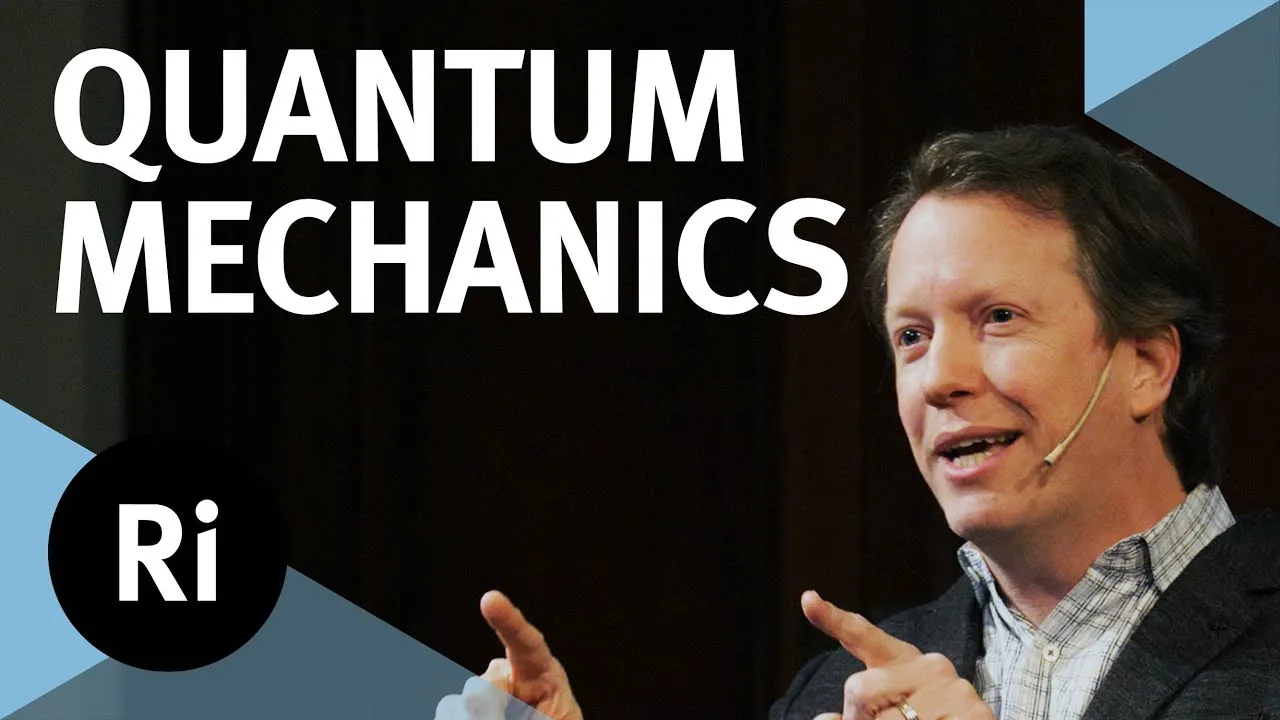
Quantum Physics Full Course Quantum Mechanics Course 
This course provides an introduction to quantum mechanics, covering key concepts such as complex numbers, probability, variance, and wave functions. It also explores the domain of quantum mechanics and provides examples of complex numbers in action. This course is ideal for those looking to gain a better understanding of quantum physics. ▼
ADVERTISEMENT
Course Feature
![]() Cost:
Cost:
Free
![]() Provider:
Provider:
Youtube
![]() Certificate:
Certificate:
Paid Certification
![]() Language:
Language:
English
![]() Start Date:
Start Date:
On-Demand
Course Overview
❗The content presented here is sourced directly from Youtube platform. For comprehensive course details, including enrollment information, simply click on the 'Go to class' link on our website.
Updated in [February 21st, 2023]
) Introduction to quantum mechanics.
) The domain of quantum mechanics.
) Key concepts of quantum mechanics.
) A review of complex numbers for QM.
) Examples of complex numbers.
) Probability in quantum mechanics.
) Variance of probability distribution.
) Normalization of wave function.
) Position, velocity and momentum from the wave function.
) Introduction to the uncertainty principle.
) Key concepts of QM - revisited.
) Separation of variables and Schrodinger equation.
) Stationary solutions to the Schrodinger equation.
) Superposition of stationary states.
) Potential function in the Schrodinger equation.
) Infinite square well (particle in a box).
) Infinite square well states, orthogonality - Fourier series.
) Infinite square well example - computation and simulation.
) Quantum harmonic oscillators via ladder operators.
) Quantum harmonic oscillators via power series.
) Free particles and Schrodinger equation.
) Free particles wave packets and stationary states.
) Free particle wave packet example.
) The Dirac delta function.
) Boundary conditions in the time independent Schrodinger equation.
) The bound state solution to the delta function potential TISE.
) Scattering delta function potential.
) Finite square well scattering states.
) Linear algebra introduction for quantum mechanics.
) Linear transformation.
) Mathematical formalism is Quantum mechanics.
) Hermitian operator eigen-stuff.
) Statistics in formalized quantum mechanics.
) Generalized uncertainty principle.
) Energy time uncertainty.
) Schrodinger equation in 3d.
) Hydrogen spectrum.
) Angular momentum operator algebra.
) Angular momentum eigen function.
) Spin in quantum mechanics.
) Two particles system.
) Free electrons in conductors.
) Band structure of energy levels in solids.
(Please note that we obtained the following content based on information that users may want to know, such as skills, applicable scenarios, future development, etc., combined with AI tools, and have been manually reviewed)
This Quantum Physics Full Course Quantum Mechanics Course is an online course designed to provide learners with a comprehensive introduction to quantum mechanics. Learners will gain an understanding of the domain of quantum mechanics, key concepts, complex numbers, probability, wave functions, the uncertainty principle, Schrodinger equation, stationary states, potential functions, infinite square well, quantum harmonic oscillators, free particles, Dirac delta function, boundary conditions, linear algebra, Hermitian operators, statistics, energy time uncertainty, 3D Schrodinger equation, hydrogen spectrum, angular momentum, spin, two particles system, free electrons in conductors, and band structure of energy levels in solids. This course is suitable for learners who are interested in physics, mechanics, quantum theory, and quantum science.
[Applications]
The application of this Quantum Physics Full Course Quantum Mechanics Course can be seen in various fields such as physics, chemistry, engineering, and computer science. It can be used to understand the behavior of particles and systems at the atomic and subatomic level. It can also be used to develop new materials and technologies, such as quantum computing and quantum cryptography. Additionally, it can be used to study the behavior of light and other electromagnetic radiation, as well as to understand the structure of matter. Finally, it can be used to develop new theories and models of the universe.
[Career Paths]
1. Quantum Physicist: Quantum physicists are responsible for researching and developing theories and models related to quantum mechanics. They use their knowledge of quantum mechanics to develop new technologies and products, such as quantum computers, quantum sensors, and quantum communication systems. They also work to understand the behavior of particles at the atomic and subatomic level. As the field of quantum mechanics continues to grow, the demand for quantum physicists is expected to increase.
2. Quantum Engineer: Quantum engineers are responsible for designing and building quantum systems and devices. They use their knowledge of quantum mechanics to develop new technologies and products, such as quantum computers, quantum sensors, and quantum communication systems. They also work to understand the behavior of particles at the atomic and subatomic level. As the field of quantum mechanics continues to grow, the demand for quantum engineers is expected to increase.
3. Quantum Computing Researcher: Quantum computing researchers are responsible for researching and developing new algorithms and techniques for quantum computing. They use their knowledge of quantum mechanics to develop new algorithms and techniques for quantum computing, such as quantum algorithms, quantum error correction, and quantum cryptography. As the field of quantum computing continues to grow, the demand for quantum computing researchers is expected to increase.
4. Quantum Information Scientist: Quantum information scientists are responsible for researching and developing new theories and models related to quantum information. They use their knowledge of quantum mechanics to develop new theories and models related to quantum information, such as quantum entanglement, quantum teleportation, and quantum cryptography. As the field of quantum information continues to grow, the demand for quantum information scientists is expected to increase.
[Education Paths]
1. Bachelor's Degree in Quantum Physics: A Bachelor's Degree in Quantum Physics is a four-year program that provides students with a comprehensive understanding of the principles of quantum mechanics. Students will learn about the mathematical and physical foundations of quantum mechanics, as well as its applications in various fields. They will also gain an understanding of the mathematical and physical principles of quantum mechanics, and how they can be used to solve problems in physics, chemistry, and engineering. Additionally, students will gain an understanding of the current research and development in the field of quantum mechanics.
2. Master's Degree in Quantum Physics: A Master's Degree in Quantum Physics is a two-year program that provides students with a more in-depth understanding of the principles of quantum mechanics. Students will learn about the mathematical and physical foundations of quantum mechanics, as well as its applications in various fields. They will also gain an understanding of the mathematical and physical principles of quantum mechanics, and how they can be used to solve problems in physics, chemistry, and engineering. Additionally, students will gain an understanding of the current research and development in the field of quantum mechanics.
3. Doctoral Degree in Quantum Physics: A Doctoral Degree in Quantum Physics is a four-year program that provides students with an advanced understanding of the principles of quantum mechanics. Students will learn about the mathematical and physical foundations of quantum mechanics, as well as its applications in various fields. They will also gain an understanding of the mathematical and physical principles of quantum mechanics, and how they can be used to solve problems in physics, chemistry, and engineering. Additionally, students will gain an understanding of the current research and development in the field of quantum mechanics.
4. Post-Doctoral Degree in Quantum Physics: A Post-Doctoral Degree in Quantum Physics is a two-year program that provides students with an even more advanced understanding of the principles of quantum mechanics. Students will learn about the mathematical and physical foundations of quantum mechanics, as well as its applications in various fields. They will also gain an understanding of the mathematical and physical principles of quantum mechanics, and how they can be used to solve problems in physics, chemistry, and engineering. Additionally, students will gain an understanding of the current research and development in the field of quantum mechanics.
The development trends in quantum physics are rapidly advancing, with new discoveries being made every day. Quantum computing is becoming increasingly popular, and quantum cryptography is being used to secure data. Additionally, quantum mechanics is being used to develop new materials and technologies, such as quantum dots and quantum sensors. As the field of quantum physics continues to evolve, the demand for qualified professionals with a deep understanding of the principles of quantum mechanics will only continue to grow.
Course Provider

Provider Youtube's Stats at AZClass
Discussion and Reviews
0.0 (Based on 0 reviews)
Explore Similar Online Courses

I Will Teach You to Be A World-Class Business Coach

Jewelry Workshop: Bead Wrap Chain & Etch

Python for Informatics: Exploring Information

Social Network Analysis

Introduction to Systematic Review and Meta-Analysis

The Analytics Edge

DCO042 - Python For Informatics

Causal Diagrams: Draw Your Assumptions Before Your Conclusions

Whole genome sequencing of bacterial genomes - tools and applications

Foundations of Quantum Mechanics

Gravity and Quantum Mechanics - The Quest for Unification

A Brief History of Quantum Mechanics - with Sean Carroll
 Related Categories
Related Categories
 Popular Providers
Popular Providers
Quiz
 Submitted Sucessfully
Submitted Sucessfully
1. What is the domain of quantum mechanics?
2. What is the mathematical formalism of quantum mechanics?
3. What is the energy time uncertainty principle?
4. What is the bound state solution to the delta function potential TISE?


Start your review of Quantum Physics Full Course Quantum Mechanics Course